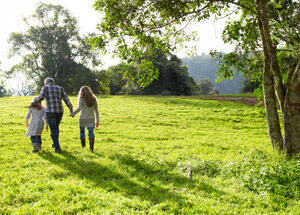University News Last updated 23 May 2013

The government released guidance this week developed in collaboration with Birmingham City University designed to increase private investment in nature conservation.
The guidance was a key commitment from last year's Natural Environment White Paper and is designed to help conservation projects find funding from partnerships with the private sector, while providing investors with clear benefits they can report to their stakeholders, including improvements in water quality, biodiversity and climate benefits.
Birmingham City University has been at the forefront of research into ‘payments for ecosystem services’, with the Department for Environment, Food and Rural Affairs’ (DEFRA) guide co-authored by Professor Mark Reed from the University’s School of the Built Environment.
Professor Reed said: “The guidance draws on work that my colleagues and I have been doing with water companies and other investors who are interested in paying for the water, biodiversity and climate benefits of restoring damaged peat bogs.
“Companies are increasingly under pressure to account for their carbon emissions and report on the sustainability of their operations, so investing in projects like this can be a win-win for business and conservation. This is one major step that helps to build capacity and understanding across the private sector that nature is an asset and not just a constraint on development. "
The work is also feeding research under the National Ecosystem Assessment follow on project where researchers from the University are actively embedding the value of nature into a range of public policy tools used by policy and decision makers to help the environment become part of policy and decision making processes.
Alister Scott, Professor of Environmental and Spatial Planning at Birmingham City University, said: “All too often we read doom and gloom about nature and wildlife to such an extent that we are becoming immune from its impact. Research at Birmingham City University is leading the way in developing more positive responses that work with the environment as an asset for society and the economy and this report today on Payments for Ecosystem Services is one of a series of initiatives that the University is pioneering.
“While the State of Nature report is a key alert to what is going wrong, there is an urgent need to reframe the conservation in a more positive way and to engage with government, business and developers.”